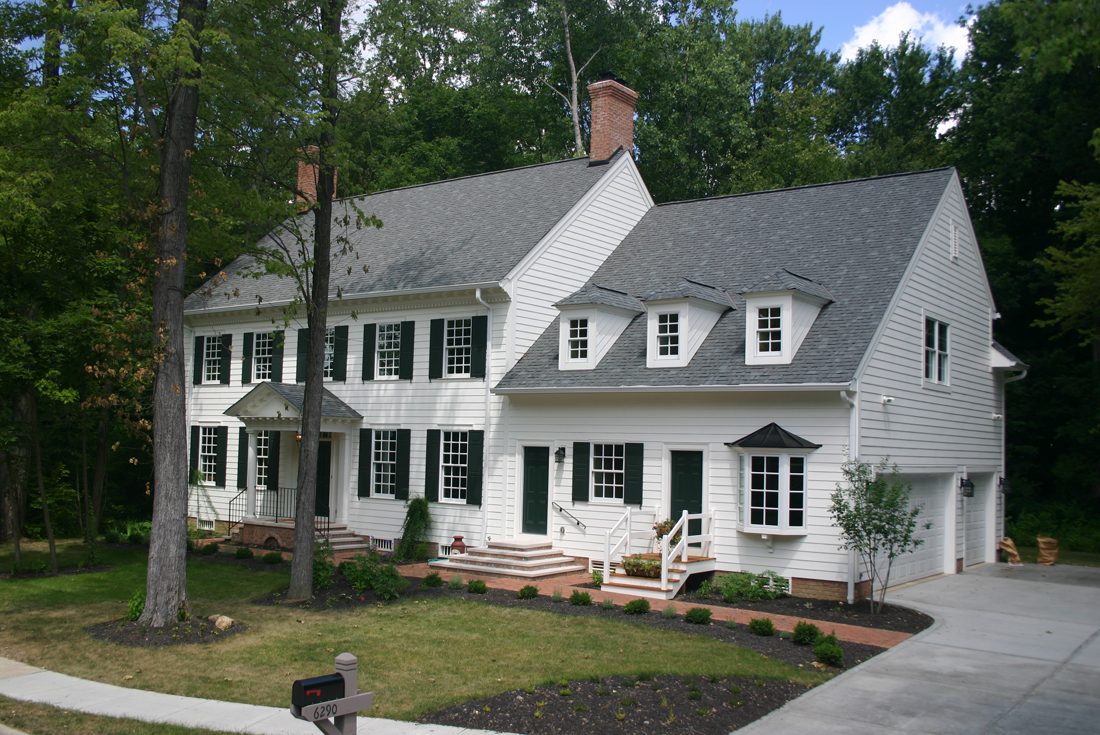
Choosing The Right Window Shutters for Your House
“Away to the window I flew like a flash,
Tore open the shutters, and threw up the sash.”
That’s a delightful passage for a young child to hear, especially when it’s Mom or Dad reading it with all the wonder and excitement the line suggests.
Even if the youngster doesn’t know exactly what it means.
Mom and Dad explained, of course, that a sash is part of a window – the part that the writer “threw up” to look out the window, and that shutters are those “doors” on the outside of the window.
But reading this dramatic account many years later, it occurred to me that the writer described opening the shutters before he opened the window…how is that possible from the inside – aren’t shutters on the outside of the window? (more on this later).
What Are Window Shutters For?
Window shutters in some form or another have been around as long as there have been openings in walls.
Early shutters were intended to cover an opening in the wall, protecting the interior of the house from the weather, from animals, and from intruders – long before the invention of windows.
In the mid-1800s window glass came into wide use in America , and changed the way shutters are used. Shutters were no longer needed to protect the house; they were needed to protect the fragile and expensive glass.
But as window quality improved, protection from the elements became less important. And shutters – when they were used – became mostly decoration.
Today, shutters remain an important element of the composition of the exterior of many homes, even if they only serve as ornamentation.
Well-chosen and well-placed shutters can be a great finishing touch; many home designs just wouldn’t be complete without them.
But poorly-chosen and installed shutters can hurt a home’s appeal and value.
Here’s how to get the right shutters for your home.
Proper Shutter Size and Placement
It seems obvious, but shutters don’t work on a house that doesn’t have room for them. If a window is too close to a corner, a shutter can stick out beyond the edge of the house. On a house with siding, a shutter shouldn’t even overlap the corner board.
Shutter placement can also be difficult if windows are too close together – the space between shutters on adjacent windows should be at least half the width of one shutter.
The size of a window or group of windows determines the width and height of a shutter. Ideally, the width of shutters used in pairs on windows should be half the width of the window, and both should be the same height of the window.
That helps give the shutters authenticity; if the shutters were closed, they’d completely cover the window.
Which makes shutters tricky on multiple-window openings – they can look silly if they aren’t big enough to cover the opening and ridiculous if they are.
And odd as it may seem, a small window should usually have only one shutter.
For Authenticity, Shutters Should Have Hardware
Authenticity also applies to shutter hardware and how shutters are attached.
Since they don’t need to be functional, shutters are often wrongly attached directly to a home’s siding or brick with screws. From a distance they might look ok, but up close – where details count – they look cheap and fake.
Shutters should always be hung with operable shutter hardware, even if they’re never going to be used. They’ll look much better that way and here’s a bonus – they can be swung out of the way so you can paint or clean behind them.
Operable shutter hardware is widely available and consists of two parts. Shutter hinges allow the shutter to swing, and come in a variety of sizes to allow the shutters to clear trim or masonry veneers.
Shutter dogs hold the shutter against the wall in the open position. They’re decorative, in designs appropriate for different Architectural styles.
And a shuttered home with operable hardware looks much better than one without.
Proper Shutter Style
Different shutter styles evolved in different climates; hot humid climates gave rise to the louvered shutter which keeps out the weather but still allows some air flow to cool the house.
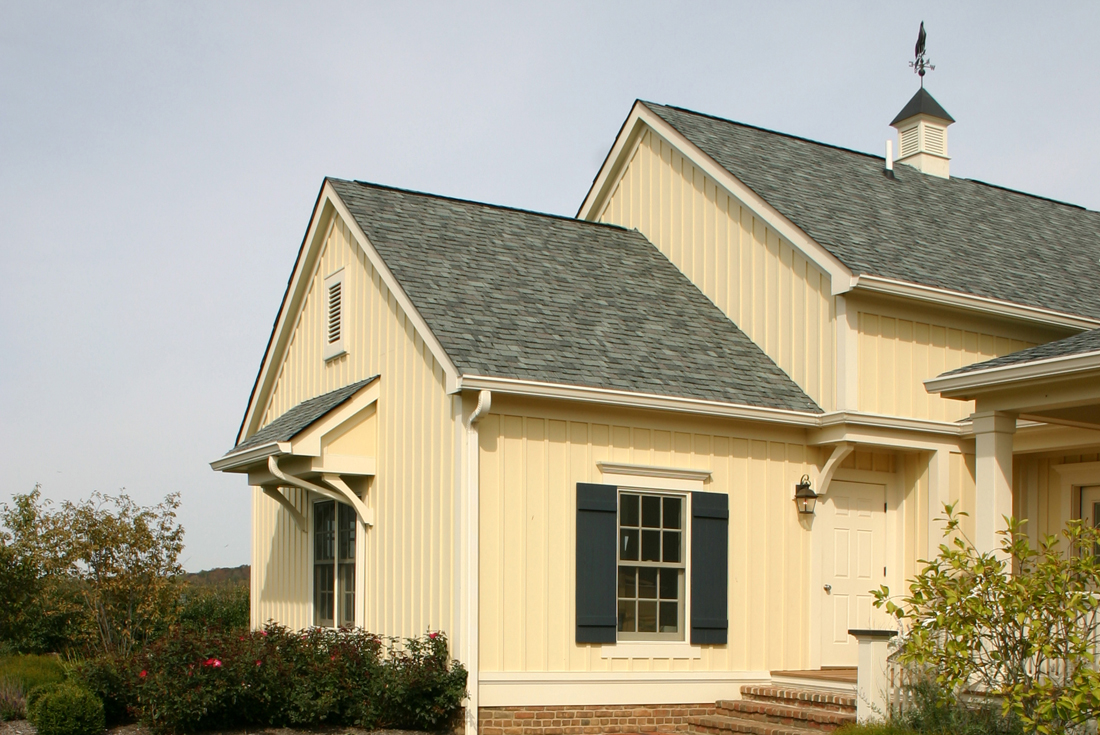
Solid or paneled shutters were needed in the colder climate of the northeast United States, where winter winds, ice, and snow might damage window frames and glass.
In rural areas, the craftsmanship necessary to build paneled and louvered shutters wasn’t always available or affordable, resulting in the creation of simply-constructed board shutters.
So home styles with a New England Colonial heritage should have solid or paneled shutters; homes based on the Architecture of the American South should have louvered shutters, and “informal” styled homes (“French Country”, for example) often look best with board shutters.
Shutter Materials and Colors
Real wood shutters can’t be beat for authenticity. But like any other part of the exterior of a home, shutters take a beating from the weather. Real wood shutters suffer the worst, and may require frequent repainting or even replacement.
Vinyl shutters are a decent alternative to wood and never need repainting but choose vinyl shutters carefully – the quality of these units varies widely. Better quality vinyl shutters will hold their shape and color longer.
Composite shutters however, offer the best combination of authenticity and durability. Composite materials vary between companies, but they’re often a combination of engineered wood, PVC, and fiberglass with a factory-applied finish.
My personal favorite? The “Architectural Collection” from Atlantic Premium Shutters.
A typical home color scheme has two or three colors; shutters should be painted the accent color. Sometimes that means matching the color of the front door, sometimes the color of the windows, but always a different color than the siding or trim.
Mama in Her Kerchief, and I in My Cap
Clement Clarke Moore wrote the poem, “A Visit From St. Nicholas” (today called “Twas The Night Before Christmas“) in 1823 from his Manhattan Island mansion, Chelsea. The exterior walls of early 19th century estate homes like his were built mostly of brick, and were often very thick – as much as 18 inches or so.
Such extraordinarily thick walls made it almost impossible to reach and open shutters mounted on the outside of the wall; so the shutters were sometimes mounted on the inside – which is why in his poem, he “tore open the shutters” before he “threw up the sash”.
Wood framing became popular in the late 19th century Victorian era, with much thinner walls – and allowing shutters mounted outside to be easily reached from the inside.
Now can someone please explain to me what a sugar plum is?


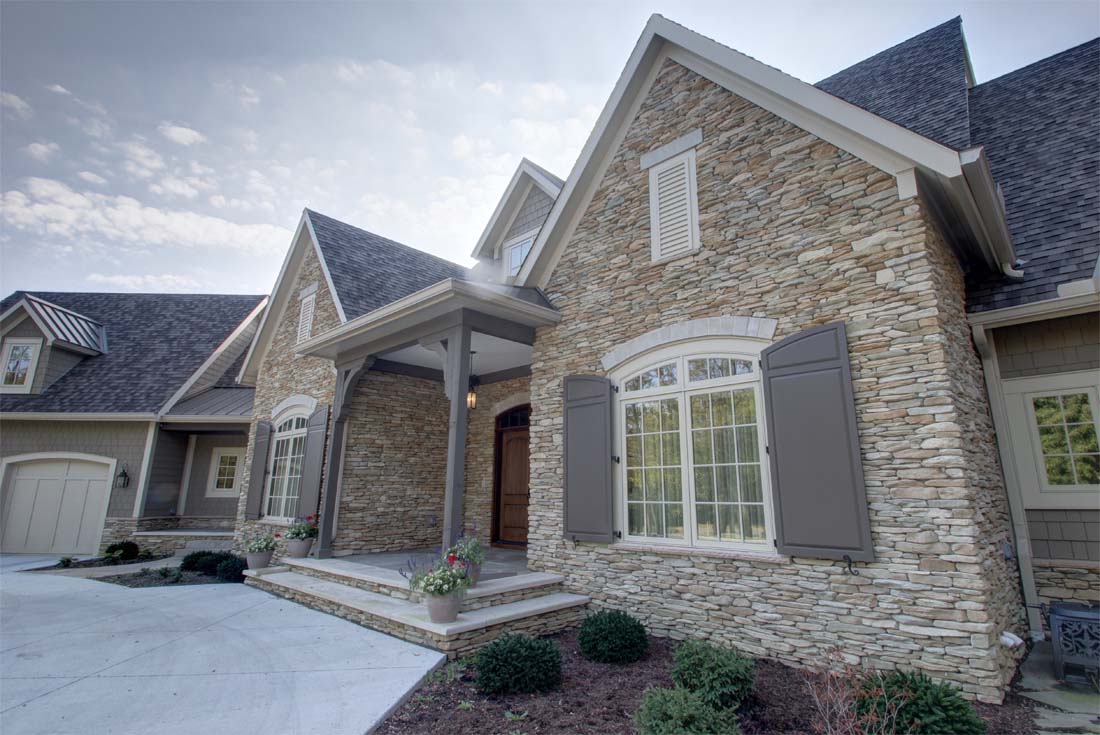
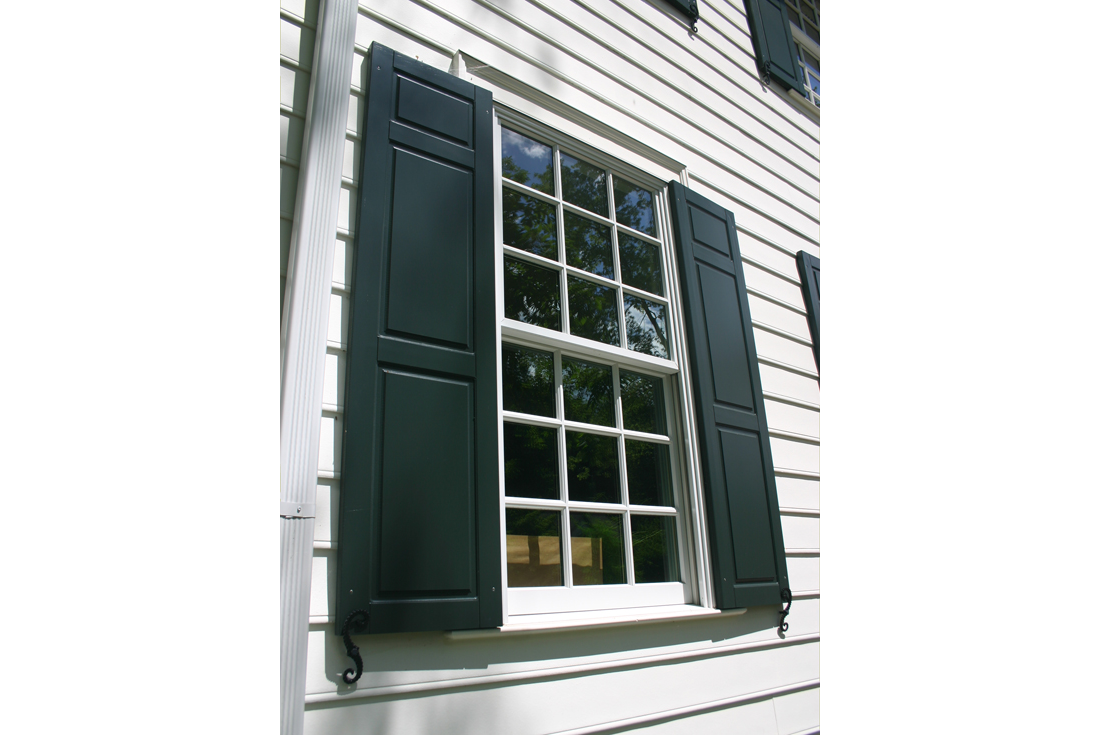
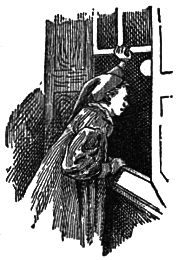

My mom has decided to have a window shutter because she claims that it makes the house ten times cuter. I wasn’t actually convinced of her reason since I’m quite strict with my budget. But when I saw your article and read about the idea that solid or paneled shutters can actually help in preventing snow and ice from breaking the windows, I was somewhat convinced. The area we live in suffers from powerful snowstorms during winter so it might be worth considering. Thanks a lot!
My wife and I are wanting to get new shutters for our house this summer so thanks for sharing this. I like your point about measuring the space between the shutters too. I want to make sure they are sized properly for our windows so I’ll be sure to do this.
I really like that you mentioned how important it is to get shutters hardware, because it is best to have shutters that are functional and can be retracted. I am looking to get new shutters for my home, and I wasn’t sure what kind were best. I will make sure to get shutters that are functional and have hardware.
Our black vinyl shutters have faded after 30 years. I would like to give our exterior a bit more modern look. Do you have a suggestion for a shutter style that would help me achieve that? It is a very box-like traditional two story house now.
Can someone help me decide? I have an over garage room that looks out into the front of the so the windows of this room are very visible to the world. There are three windows lined up next to each other, each about 24 inches wide, with roughly 18 inches between them. I want to install shutters on the house. How should I put them on when the space between the windows isn’t as wide as the windows?
Kelly – sounds like the windows are just too close together, maybe not a good house for shutters. Wonder if there’s another design solution that would perk up the front for you?